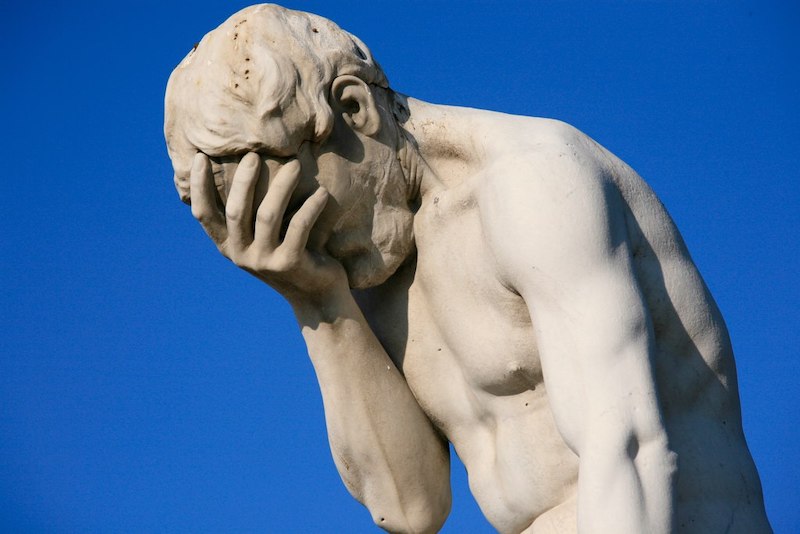Our nation’s history of slavery is on high whitewashing alert. Florida’s new standards for education (a paradox if there ever were one) state that slaves benefitted from gaining useful skills during slavery, while we all know how hard it is to gain useful skills when you’re being lynched or whipped, or teaching you to read is outlawed. (Governor DeSantis is wrong: Florida is not where “woke” goes to die—it’s where sanity and compassion go to die.)
After this news came out, I thought about my favorite civil war movie and how pertinent it is to today’s attempts to rewrite black history, so I decided to revisit it this past week.

I’ll start by saying Steven Spielberg’s Lincoln is an outstanding movie, and Daniel Day-Lewis proved himself yet again to be one of the greatest actors of our generation. (It’s a shame he claimed to retire, but I hope he returns someday.) The way he dissolved into our greatest president made you feel you were watching Honest Abe himself. It’s definitely the best performance of Lincoln on screen that I have ever seen.
But my favorite Lincoln movie? Not even close. If you can get past the silly premise, I highly recommend Abraham Lincoln: Vampire Hunter.
The movie was adapted by Seth Grahame-Smith from his novel of the same name, following his success of Pride and Prejudice and Zombies. The story brilliantly retells the real history that we know about Lincoln: his indentured servant life as a boy, his early life in Springfield, his real-life friendships, his courtship with Mary Todd and subsequent marriage, his rise to the presidency, the Emancipation Proclamation, and major Civil War battles until the North eventually won the war. But this story is only a frame for the real underlying story: while most of this was going on, he was a dedicated, axe-wielding killer of blood-sucking vampires.
Silly, right? No, not at all. In fact, I find it hard to separate fact from fiction here, as you’ll find in some of the best allegories.
As Dan Rather said this past week on Twitter (er, X), “Slavery was pure and unadulterated evil. There is no ‘other side to the story.’” Slave owners sucked the life out of Black slaves and then almost sucked the life out of our nation by seceding and going to war over slavery.
Even when I went to high school, I was taught a confusing subtext that the history of the Civil War is a complicated one. It was supposedly as much about the Southern economy, states’ rights, or representation in Congress. Doris Kearns Goodwin’s A Team of Rivals—one of the best biographies I’ve ever read—accurately portrays the delicate balancing act over slavery that Lincoln had to go through with a cabinet made up of his former rivals for the presidency.
I’m not a historian, and I can’t deny any of the above. A Team of Rivals (which informed Spielberg’s movie) superbly documents this balancing act and the political minefield that Lincoln had to steer through. But these descriptions of the time hide the inescapable truth that Lincoln pushed through his agenda to combat slavery because he felt it was immoral and evil. As a youth he had experienced poverty and indentured servitude alongside slaves, and he was probably exposed to its evil in a way that forged a worldview that most previous presidents could never have had (especially the many who owned slaves).
Slavery was evil. And now, more than eight score years later, there are elements in this country who would deny that truth and stifle attempts to teach it. It’s bad enough that white supremacy is on the rise more than ever, but if this isn’t a case of white supremacy infiltrating our government and education, I don’t know what is.
The only way to describe this phenomenon is “slavery denial,” which is very similar to Holocaust denial. It’s basically saying, “That didn’t happen,” or “That didn’t happen that way,” or, ultimately, “It wasn’t really that bad.” It ignores and excuses the evil in our history because some people don’t want to relive it through learning. They want no disruption to their comfort zones where America is a perfect nation, while completely ignoring that America was never a comfort zone to slaves, and it still isn’t for many African Americans and others. It calls these evils a big nothingburger. And if you can’t accept that slavery is evil, it’s much easier to excuse yourself about lesser attacks on human, civil, and voting rights. It’s much easier to shrug off today’s racism if you believe America was never racist, even when Americans owned slaves.
Abraham Lincoln: Vampire Hunter cuts right to the point that slavery was an evil that needed to be extinguished in the harshest way possible. Once you accept that point, you understand our greatest president’s motivation to slay it regardless of the consequences. And today our national dialogue is once again a house divided, where everything you stand for is vilified by the other side: being against slavery, supporting Ukraine against Russia, standing up for the LGBTQ+ community, and even Barbie.
Plus the movie is a ton of fun. Old Abe wielding an axe against this evil is a perfect metaphor, but it’s also amazing to watch. Benjamin Walker, the Julliard-trained actor who plays him, is no Daniel Day-Lewis, but he inhabits the role well, and boy could he swing that axe.
Metaphorically speaking, we need to do the same to all efforts to quash our history or to downplay the pure evil that was slavery. We need to cut these elements out of our educational system and our national dialogue. It’s a chain we need to break.

